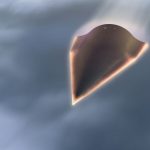
Pacific Command chief says more ‘freedom of navigation missions’ coming in a challenge to outsized Chinese territorial claims
Monday, February 01, 2016 by usafeaturesmedia
http://www.nationalsecurity.news/2016-02-01-pacific-command-chief-says-more-freedom-of-navigation-missions-coming-in-a-challenge-to-outsized-chinese-territorial-claims

(NationalSecurity.news) The head of the U.S. Navy’s Pacific Command says that in the near future more “freedom of navigation” missions will take place in the South China Sea in what appears to a bid by the Obama administration to reassert American power in the region.
As reported by USNI News, Adm. Harry Harris said during a conference sponsoered by the Center for Strategic and International Studies that freedom of navigation is “a matter of fundamental principle” to the U.S., adding that more operations in the South China Sea would not only take place but that they would be more complex.
“I believe the [USS] Lassen [operation] did challenge some of China’s claims,” Harris said in response to a question at the forum, held in Washington, D.C.
Further, he said that the passage of the U.S. guided-missile destroyer to within 12 nautical miles of Subi Reef, one that has been artificially reclaimed by China, was carried out as a means of not abiding by Beijing’s claims of sovereignty over the islet as it pertained to innocent passage.
“You will see more of these,” he said.
Earlier, Harris said that the Chinese practice of turning reefs into manmade island that will be “capable of supporting significant military forces” would also include deep-water ports. And though other regional powers have also staked claims in the region – believed to be rich in mineral and oil and gas deposits – none have put forth an effort matching that of Beijing. To emphasize that point, Harris put up a slide that showed China had reclaimed some 3,000 acres of former reefs in the past year-and-a-half alone.
Calling the South China Sea “a contested area,” Harris said that assured access to the region’s natural resources is in dispute, even as it has become one of shared domain in terms of surface shipping/trade and, below the surface, the placement of fiber optic cables.
Harris said that in a meeting with Chinese military officials last fall they were “pretty rigid about their ownership of the islands and their resources,” USNI News noted. In response, Harris said that the U.S. believes the reclamation projects are “provocative,” along with territorial claims the Obama administration believes are outsized.
USNI News further reported:
Saying Beijing has been helpful in anti-piracy patrols off the Horn of Africa, civilian evacuations from Yemen and in other areas, “China will continue to grow” and that “is not a bad thing.” Harris said the concern is about how China uses its power. One example of that growing power is China’s building of a coast guard cutter—25 percent larger than an Arleigh Burke–class guided-missile destroyer (DDG-51) —for use in disputed waters with Japan.
And while the U.S. retains a qualitative advantage over the Chinese People’s Liberation Army Navy in terms of gear, ships and personnel, Beijing’s forces in the region outnumber U.S. assets there. To counter that, Harris said he has discussed with officials in the nation’s capital the need to bolster American asymmetrical advantages like anti-submarine warfare.
But he also noted that the U.S. is not alone in the region.
“We have allies, friends and partners where China does not,” he said, adding that the U.S. works in concert with Australia, Singapore, the Philippines and Japan, among others, to shore up alliances that would prove useful against future Chinese aggression.
Indeed, as the Washington Free Beacon reported Saturday, the Pentagon sent the USS Curtis Wilber, a guided-missile destroyer, to South China Sea waters near Triton Island in the Paracel Islands chain in the northern part of the sea “to challenge excessive maritime claims,” spokesman Cmdr. Bill Urban said.
Urban said the freedom of navigation mission was aimed not just at China but others – Vietnam and Taiwan – which also have territorial claims in the region.
Steven Radil, a political geography and geopolitics professor at the University of Idaho, told NationalSecurity.news that China’s assertiveness and outsized claims in the region are natural for an emerging global power.
That said, Radil noted that getting China to reverse course – that is, end its reef-building – will be difficult given the “symbolism” they represent.
“The consequence of this symbolism is that the more China invests into the story of its claims in the Spratlys, the less likely it is to back down or reverse course,” he said, adding that the U.S. is in the difficult position of attempting to discourage Chinese expansionism while at the same time attempting to assist in Beijing’s development as a regional power and not a rival.
As for the U.S. freedom of navigation missions, Radil says the send a clear signal to China that the U.S. isn’t going to simply cede the South China Sea to Beijing.
He said that a freedom of navigation mission last fall, when a U.S. destroyer passed to within 12 nautical miles of a manmade Chinese reef, a Chinese warship followed the American vessel for some distance. He also noted that the U.S. government likely made the American warship’s mission known to the Chinese government beforehand.
“This means that the U.S. will likely continue to make sure the Chinese government knows about these missions well in advance to take the decision about how to respond out of the hands of the Chinese military,” he said.
See also:
NationalSecurity.news is part of the USA Features Media network of sites. For advertising opportunities, click here.
Materials reuse policy: Click here
Tagged Under: Tags: China, South China Sea






